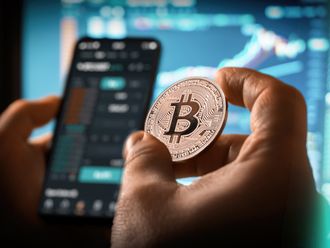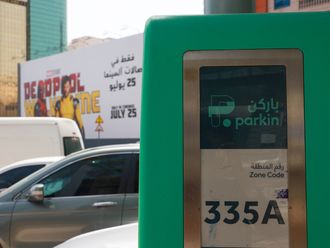Dubai: The astronomical rise in Tabreed's share price has led to confusion over what is driving intense buying interest in the Abu Dhabi-based utilities firm.
Tabreed, which is also known as the National Central Cooling Company, has seen its stock value gain 427 per cent from its low on January 16 — the company's share price has risen from 40 fils to Dh2.13 in seven weeks — although the reasons behind the surge are unclear.
Several listed companies — including construction firm Arabtec — have experienced significant upwards movement in recent weeks as the Dubai Financial Market continues its bull run. However, such large swings tend to create speculation as analysts and investors look for answers.
"Market rumours hint that Tabreed buyers are similar to Arabtec, with strategic buyers building positions in the company using various entities to stay below the five per cent declaration threshold set by the Securities and Commodities Authority law," Mohammad Ali Yasin, a capital markets specialist based in the UAE, said.
Local, regional entity
"The market believes the main driver is a local or a regional entity as we do not see a huge increase in foreign holdings in the company. I am sure market regulators are watching these huge price movements and asking questions about it," he added.
An official at the Dubai Financial Market, where Tabreed shares are traded, told Gulf News yesterday that price change developments were being monitored across all listed companies. "As a rule, we monitor all price movements. We take action only if we see it necessary," the official said. A Tabreed spokesperson said the company did not comment on market speculation.
In April last year, Tabreed completed its recapitalisation programme, which enabled it to settle its 2006 sukuk in full upon maturity. The programme involved refinancing Dh2.63 billion of debt and receiving Dh3.1 billion of long-term capital from Mubadala Development in return for Mubadala upping its stake in Tabreed.
Last month, Tabreed announced it made a net profit of Dh182.7 million ($50 million) in 2011, up 34 per cent from Dh136.8 million the previous year. Tabreed said profits were boosted by the opening of 11 new plants, including eight serving the Dubai Metro Green Line.
"Financing models may continue to change in the Middle East district cooling market, primarily because financial markets in the Middle East are now coming back into action after a slowdown," Kumar Ramesh, industry manager at the environmental and building technologies practice for the Middle East, North Africa and South Asia at Frost & Sullivan, said.
Long-term prospects
Ramesh said investors are looking for long-term prospects and that district cooling is one of the technologies they are closely examining. "Gradually, the district cooling companies are expected to move towards debt and equity structure to capitalise on the market opportunities," he said.
"Also, as the district cooling market matures, the financing models may incline towards public-private partnerships like the markets in other mature Asian and European markets," he added.












